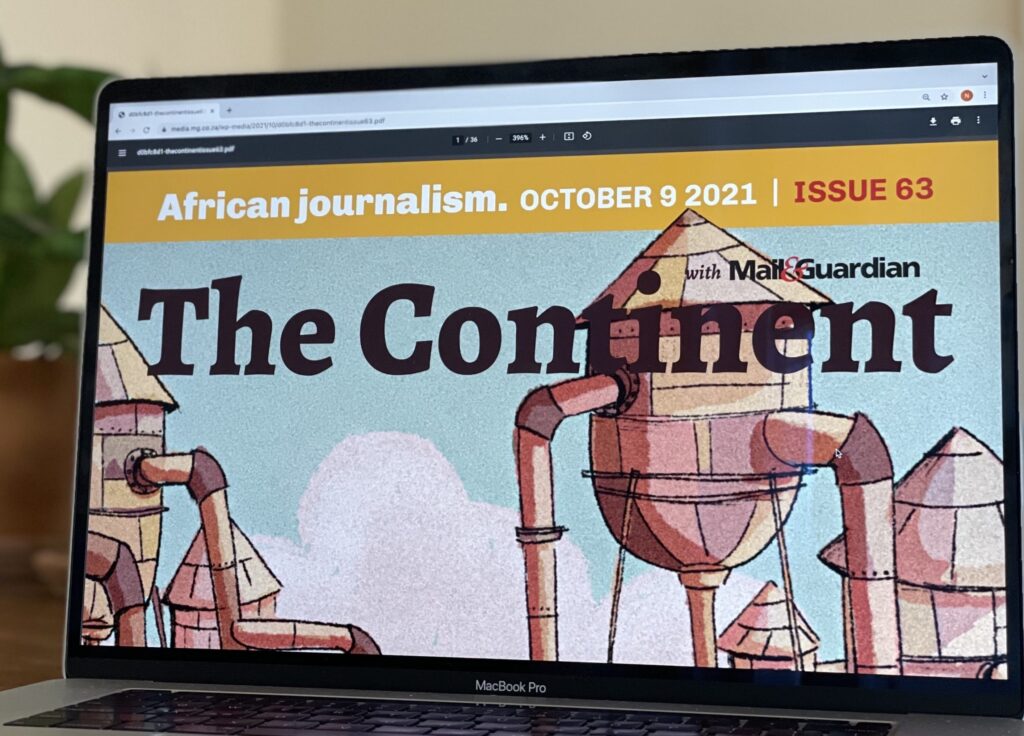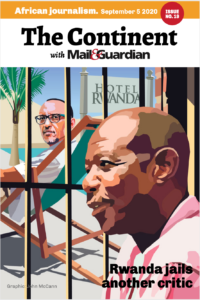
Credit: Niemann Reports
The COVID pandemic provided a fertile ground for misinformation across Africa as elsewhere, prompting a group of journalists in South Africa to turn the crisis into an opportunity by launching a newspaper to combat the deluge of fake news. The experiment – publishing The Continent, a weekly pan-African newspaper designed to be shared and read on messaging apps,  especially WhatsApp – has been a success. More than 18 months into its existence, it has 16,000 subscribers, writes Aanu Adeoye, a Mo Ibrahim Foundation Academy Fellow at Chatham House, the London-based foreign policy think-tank.
especially WhatsApp – has been a success. More than 18 months into its existence, it has 16,000 subscribers, writes Aanu Adeoye, a Mo Ibrahim Foundation Academy Fellow at Chatham House, the London-based foreign policy think-tank.
Three factors that have contributed to its success, he contends:
- The first is an appetite for a continent-wide paper made by Africans in Africa. We publish articles about politics, culture, sports and several points in between, treating them with the seriousness they deserve. That is unique in a world where decisions on coverage of Africa are often made in western capitals. Local outlets interested in coverage of Africa are constrained by the financial commitments and often take copy from wire services such as AP, Reuters or AFP, where coverage is filtered through a western lens.
- Second, we publish reporters who are already based in the countries they are writing about. This means our reports are rich with local knowledge and vital context not readily accessible to reporters who are merely passing through. We have worked with a network of more than 200 writers, journalists, cartoonists and illustrators from across Africa and elsewhere. Notable bylines have included Olusegun Obasanjo, the former Nigerian president, Maaza Mengiste, the Ethiopian writer, and Raila Odinga, the former Kenyan prime minister
- Most important is the distribution via messaging apps. We meet readers where they already are, offering a well-researched analysis of the week’s biggest stories, packaged neatly into a PDF that can be digested easily. A community of readers has emerged.
 Still, for all of The Continent’s early success, the inscrutability of WhatsApp is one of its greatest drawbacks for the publication, in a digital age where back-end metrics are everything, Christine Mungai, curator of Nairob-based Baraza Media Lab, writes for Nieman Reports.
Still, for all of The Continent’s early success, the inscrutability of WhatsApp is one of its greatest drawbacks for the publication, in a digital age where back-end metrics are everything, Christine Mungai, curator of Nairob-based Baraza Media Lab, writes for Nieman Reports.
“Funders and advertisers always want to see precise metrics, but the truth is we have no concrete idea — except through surveys and estimates — what happens after we send it out to our subscribers,” said Sipho Kings, The Continent’s co-founder and editorial director. “But for us, rising above our apparent ‘lack of metrics’ is really about setting our own terms and publishing quality, consistent journalism. We’re confident we’re doing great work.
We believe a vibrant press is crucial to a functional democracy, adds Adeoye. Subscription to The Continent is free and will remain so. But paying the paper’s contributors requires a significant outlay, helped by funding from donors such as the National Endowment for Democracy (NED).







